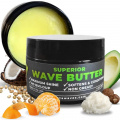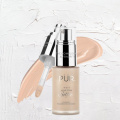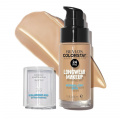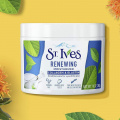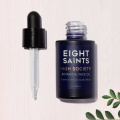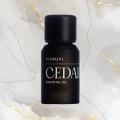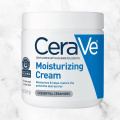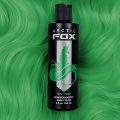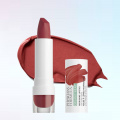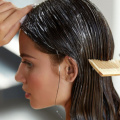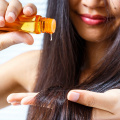Homemade Sunscreen: Facts Behind the Budget-friendly Skin Saviour
If you're thinking of making your own natural homemade sunscreen, then this is the place to learn the facts, myths, and safety issues concerned with it.
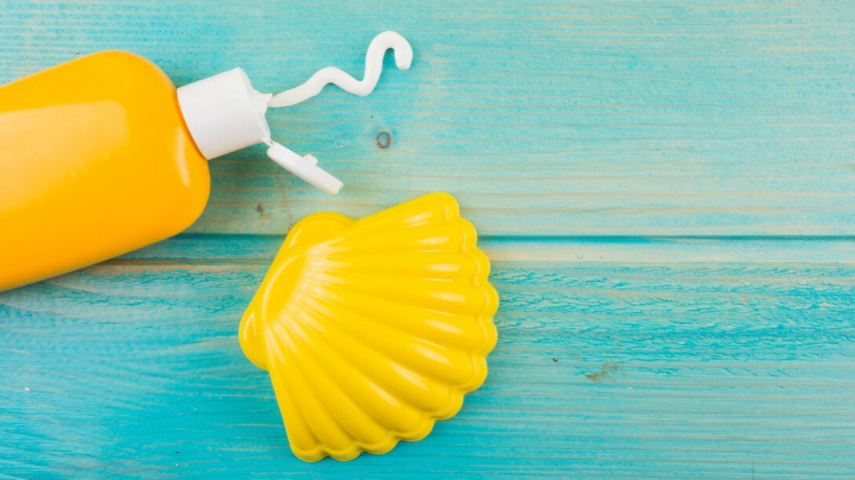
Homemade sunscreens are one of the coolest options in the current skincare market. It has its own perks like saving money, convenience, and knowing exactly what's in it. But, making a DIY sunscreen takes a lot of effort and a bit of chemistry knowledge for your sunscreen to work. Effective sunscreens scatter or reflect damaging UV rays, preventing them from penetrating your skin. There are several DIY recipes available online, but only a small percentage of them will truly shield your skin from these damaging rays.
Let's debunk some DIY sunscreen myths and see some recipes that can genuinely protect your skin.
Things to Look for in a Sunscreen

Regardless of your age and skin tone, you must be using sunscreen on an everyday basis. For your face and neck, a half-teaspoon of sunscreen works, while you'll need a whole ounce (about 2 tablespoons) for your body. The labels on them can be quite confusing, but understanding them is crucial for everyone. Hence, let's decode the sunscreen terms and see what makes an effective sunscreen.
SPF Level:
SPF means “sun protection factor" and it tells you how well a product shields your skin from UVB rays. SPF 15 blocks 93% of these rays, SPF 30 blocks 97%, and SPF 50 blocks 98% (1). Use SPF 15 for everyday indoor activities and SPF 30 or higher for extended outdoor exposure.
Broad Spectrum:
Most sunscreens used in the past only included UVB protection and not UVA, which causes tanning and early aging. Broad-spectrum sunscreen clearly states on product labels that it protects against both UVB and UVA radiation now that UVA hazards are well established.
Sunblock:
Ideally, nothing can entirely block the sun's rays. The term sunblock refers to products that block UV radiation by remaining on top of your skin rather than being absorbed. Most products have a mix of sunscreen and sunblock ingredients.
Physical & Chemical Sunscreen:
Physical or mineral sunscreens reflect UV rays, making them ideal for those concerned about chemical absorption. They contain zinc oxide and titanium dioxide and may feel heavier on the skin.
Whereas, chemical sunscreens absorb UV rays, are lighter, and may rub in more easily. They include active ingredients like avobenzone, octocrylene, and oxybenzone.
Natural Sunscreen:
Natural or herbal sunscreens skip chemical sun protection filters. Instead, they use plant-based ingredients to shield your skin from UV rays. These ingredients are usually earth-based minerals like zinc oxide and titanium dioxide.
Plus, they are devoid of oxybenzone, octocrylene, and octinoxate which can potentially harm coral reefs.
Water-Resistant:
No sunscreen is waterproof, but water-resistant ones stay effective for a specific time while swimming or sweating. Some last 40 minutes, others up to 80 minutes. You must reapply them often.
Remember to apply sunscreen 30 minutes before going outside and reapply every two hours, especially after swimming or sweating.
Benefits of Homemade Sunscreen for Face

Creating your sunscreen at home has some real perks. You get to choose the ingredients, tailoring them to your skin's needs. Plus they don't involve harsh chemicals and often include natural oils that are rich in antioxidants. Thus you can be confident about no nasty side effects.
Here's a simple recipe to whip up your DIY sunscreen.
Ingredients:
- 1/4 cup of coconut oil
- 1/4 cup of shea butter
- 1/4 cup of beeswax
- 2 tablespoons of zinc oxide powder
- A few drops of essential oils for aroma (optional)
Instructions:
- In a double boiler or glass bowl, gently melt the coconut oil, shea butter, and beeswax over low heat.
- Once everything's melted, remove it from the heat and mix in the zinc oxide powder until it's all nicely blended.
- If you like, add a few drops of essential oils for a pleasant fragrance.
- Pour this mixture into a clean, airtight container and let it cool and harden before you use it.
This recipe isn't FDA-approved. So, it might not give you full UV radiation protection. Also, it's not waterproof, so you'll need to reapply it frequently. It's always smart to chat with a healthcare pro before you try any homemade sunscreen.
Now, here are some things you should consider before making and using your own sunscreen:
- This recipe doesn't specify an SPF (sun protection factor) rating.
- Zinc oxide, the main ingredient, is great at shielding you from UVA and UVB rays. However, the exact level of protection depends on how much zinc oxide you've used and how well it's mixed in. There's a chance you might not get the zinc oxide mixed in just right. This could lead to some areas of your skin getting less protection, which could result in sunburn and skin damage. So, it might not match up to a commercial sunscreen with a certified SPF rating.
- The recipe doesn't guarantee the sunscreen's water resistance. Commercial sunscreens are put through rigorous tests to prove they can handle water. So, if you're swimming or sweating with your DIY sunscreen on, you might need to reapply more often than you would with the store-bought stuff.
DIY Sunscreen Recipes

Another benefit of homemade sunscreen is that it can be tailored for different skin types, including oily skin. However, not all homemade sunscreen recipes are suitable for all skin types. The ingredients can vary, and some might work better for oily skin.
For oily skin, look for recipes with lightweight, non-greasy ingredients that won't clog your pores. Here are a few natural face sunscreen recipes suitable for oily skin:
Aloe Vera Sunscreen Lotion
This lotion contains aloe vera and offers natural sun protection, fights signs of aging, clears acne, and soothes the skin (2). It also moisturizes, lightens scars, and guards against the sun.
Ingredients:
- ¼ cup of pure aloe vera gel
- ¼ cup of coconut oil
- 2-4 tablespoons of powdered zinc oxide
- 1 cup of shea butter
- 30 drops of walnut oil
Instructions:
- In a jar, mix the coconut oil, walnut oil, and shea butter.
- Heat it gently to ensure the shea butter blends well with the other oils and melts evenly.
- Remove it from the heat after a couple of minutes and let it cool for about 10-15 minutes.
- Once it's cooled down, carefully stir in the aloe vera gel and then the zinc oxide.
Here, you're aiming for a smooth, gel-like consistency that glides on the skin effortlessly without leaving residue. It might seem a bit thick at first, but it'll melt into your skin after application.
Coconut Oil, Sunflower And Sesame Seed Oil Sunscreen
Coconut oil sunscreen is known for its effectiveness. It's rich in antioxidants that protect the skin from UV damage (2). Plus, pure sesame oil has antibacterial properties that keep the skin safe from harmful germs.
Ingredients:
- 2 tablespoons of coconut oil
- 2 tablespoons of sesame oil
- 2 tablespoons of sunflower oil
Instructions:
- Combine all three oils in a bowl and double-boil them in a skillet filled with water.
- Allow the mixture to cool before applying this natural sunscreen recipe to your face.
- Apply it to your skin daily before heading out into the sun.
Muskmelon Sunscreen
Muskmelon can help with tanned skin, reducing dryness and sunburn.
Ingredients:
One cup of muskmelon pulp (mashed)
Instructions:
Apply the mashed muskmelon on your body and face before taking a bath. It helps remove melanin marks from the skin.
Turmeric Sunscreen
Turmeric and aloe vera are excellent natural ingredients that can protect your skin from bacteria caused by excess sweat in the summer months. The strong antiseptic properties of turmeric, combined with cool aloe, work as a fantastic natural sunscreen (2).
Ingredients:
- One cup of aloe vera gel
- One tablespoon of turmeric powder
Instructions:
Mix the antiseptic turmeric and cooling aloe vera with water and freeze the mixture. These ice cubes are your sunscreen, which you can rub on your skin before leaving the house.
Almond And Olive Oil Sunscreen
Almond and olive oils are great for lightening skin tone and getting rid of facial tan.
Ingredients:
- 1 tablespoon almond oil
- 1 tablespoon olive oil
- 1 cup coconut water
- Some beeswax
Instructions:
Mix these ingredients in a glass jar and put it in hot water. Once you add zinc oxide, it'll make it smooth.
Tea Leaves Sunscreen:
The tannins in tea leaves can reduce inflammation and soothe sunburned skin.
Ingredients:
- 2 tablespoons tea leaves
- Half a cup of water
Instructions:
This one's super easy. Just soak the tea leaves in water overnight, then strain the mixture the next morning. Store the leftover water in a bottle and use it as your sunscreen.
Homemade Waterproof Sunscreen
While some homemade sunscreens claim to be waterproof, there's no real science to back that up.
Waterproof sunscreens typically contain ingredients like oils, waxes, and silicones that create a stronger water-resistant barrier. These ingredients are highly processed and aren't what most natural and DIY sunscreen folks are looking for.
These ingredients allow your skin to absorb the sunblock components of sunscreen, and they can only be made in a lab. So, homemade sunscreens may not be as waterproof as they claim to be.
Significance of Sunscreen

It's super important to put on sunscreen every day. Even when it's cloudy outside, the sun's rays can still harm your skin. The sun doesn't care about your skin color or whether you're indoors or outdoors.
Let’s see why is sunscreen important.
1. Protects from UV Rays
The ozone layer is getting thinner, which means more harmful UV rays from the sun can reach us. Sunscreen acts like a shield, stopping these rays and keeping you from getting sunburned. Look for sunscreen with an SPF of at least 30 and use it every day (3).
2. Prevents Sunburn
Sunburns make your skin thin, so you can see through it more, and bruises show up easily. Your skin might peel, swell, turn red, get hives, or itch, all because of UVB rays, the ones that cause sunburns. Blisters from sunburn can even raise the chances of skin cancer. It's found that getting sunburned often could up your risk of deadly melanoma (4).
3. Low Skin Cancer Risk
Skin cancer is really common in the US. In 2013, almost 72,000 people were diagnosed with skin melanomas, and nearly 9,400 died from it. Using sunscreen every day cuts your skin cancer risk in half (3).
4. Prevents Early Skin Aging
Sun damage from UV rays ages your skin fast. It can get thick, leathery, discolored, and lose collagen. All of this leads to lines, sagging, and wrinkles. Studies say people under 55 who use sunscreen often have 24% less chance of getting these signs of aging than those who don't (5).
5. Keeps Skin Tone Even
Sunscreen stops sun damage from causing blotches and dark spots on your skin, so it helps you keep an even skin tone.
6. Protects Exfoliated Skin
If you use skincare products with alpha hydroxy acids (AHAs), your skin gets more sensitive to UV light (6). And this goes for whether you use these products at night or during the day. Your skin stays sensitive, even the next day and a while after that. So, if you use these products, be sure to protect your skin with sunscreen.
Conclusion
Making homemade sunscreen might seem like a money-saving idea, but the reality is, there isn't much proof backing it up. Creating a safe and effective sunscreen formula is no cakewalk. It takes teams of experts years to get it right. But no worries. There are several commercial sunscreens in different budgets addressing different needs. It's ideal to find the sunscreen that suits you best, whether it's DIY, a natural choice, or a recommendation from your dermatologist. Your skin's safety comes first.
ALSO READ: How to Get Glowing Skin with Home Remedies And Lifestyle Changes





 JOIN OUR WHATSAPP CHANNEL
JOIN OUR WHATSAPP CHANNEL




































